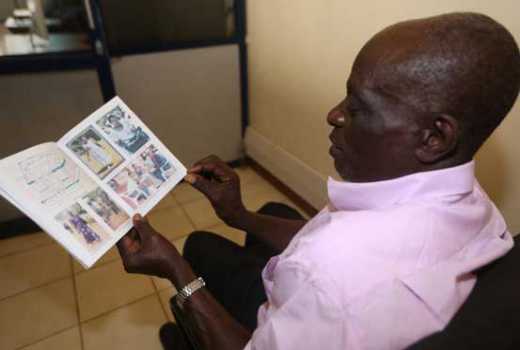×
The Standard e-Paper
Fearless, Trusted News

KISUMU, KENYA: A retired primary school head teacher, has shocked the sleepy Yath Olal village in Ugenya, after writing his 48 page eulogy.
Joseph Aggrey Omondi Obel, 70, is also planning to buy a coffin.